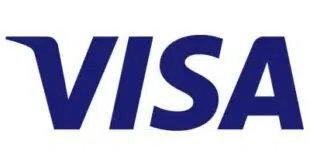They've ebbed and flowed over the years, but attempts by states to regulate interchange and payment card acceptance rules are definitely flowing, according to merchant-acquiring executives. “It seems like every month we get a new bill introduced in a state legislature,” said panelist Nicholas W. Baxter, senior vice president at bank holding company First National of Nebraska, during a session about legal and regulatory issues at the Electronic Transactions Association's annual meeting in Las Vegas. Baxter, chairman of the trade group's Government Relations Committee, said proposals that would regulate interchange or acceptance terms have been offered recently in a number of states, including California, Georgia, Oklahoma, New York, Vermont and Washington. Nothing's final yet, but the bills are drawing a lot of attention. Vermont's bill would redefine card-acceptance rules and is a model for similar bills in Georgia and Oklahoma. The Washington bill would cap interchange at 1.5% of the sale. The backers of such proposals are familiar to the payments industry. “Primarily they're pushed forward by one of the merchant associations” in the states, said Baxter, whose company is the 49% owner of First National Merchant Solutions, the big Omaha-based acquirer. “We've just witnessed a gradual build-up” in state card-regulation bills, added David Goch, ETA lobbyist and a partner in the Washington, D.C., office of Webster, Chamberlain & Bean, when asked about how the current number of bills compares with earlier years. The ETA and many acquirers generally oppose state regulation laws on the grounds that they would make business more complicated and bring the specter of government regulation further into the payments business. “The last thing you want to deal with is 50 different state laws,” said Goch. According to Baxter, many state bills are poorly written and reflect little knowledge of the payments industry. If passed, such laws could be difficult to comply with and could easily go beyond interchange, which is set by the card networks, and affect the portions of merchant pricing over which acquirers have direct control, he said. “This is the entire bucket we're talking about,” Baxter said. Independent sales organizations and acquirers need to make themselves familiar to state lawmakers before laws are proposed so that legislators are more receptive to their arguments when interchange and related bills are filed, according to Baxter. ISOs also should emphasize that they too, like the merchants the bills seek to protect, are small businesses. On the national level, however, it looks like interchange regulation will not pass this year despite three bills being introduced, according to Goch. U.S. Rep. Barney Frank, the Massachusetts Democrat who heads the House Financial Services Committee, indicated in February that interchange wasn't a priority and that he'd be focusing on broader financial-industry regulatory reform. But on the regulatory front, the Internal Revenue Service is preparing final regulations to implement a provision in a 2008 law that requires acquirers to report annual merchant gross charge volume, said Victoria Strayer, senior director at Total System Services Inc.'s TSYS Acquiring Solutions unit. Congress's goal was to find unreported or underreported taxable income, but acquirers have said the law would impose new regulatory burdens on the industry (Digital Transactions News, Sept. 1, 2008). Among other things, the regulations would require “payment settlement entities” such as acquirers to fill out new a form called a 1099-K. Acquirers also would be responsible for ascertaining that the taxpayer identification numbers they have on file for merchants match the government's and to withhold funds from merchants until differences are reconciled?which might not always be easy, according to Strayer. Acquirers also would have to store records for three years.
Check Also
With New Sheriffs in Town, Payment Players Can Expect Stiffer Scrutiny, a Lobbyist Warns
Payments companies have sensed increasing regulatory pressure since the Biden Administration’s inauguration last year, and …





